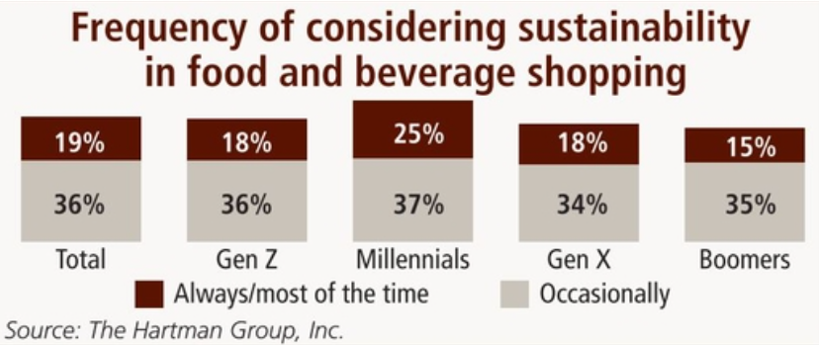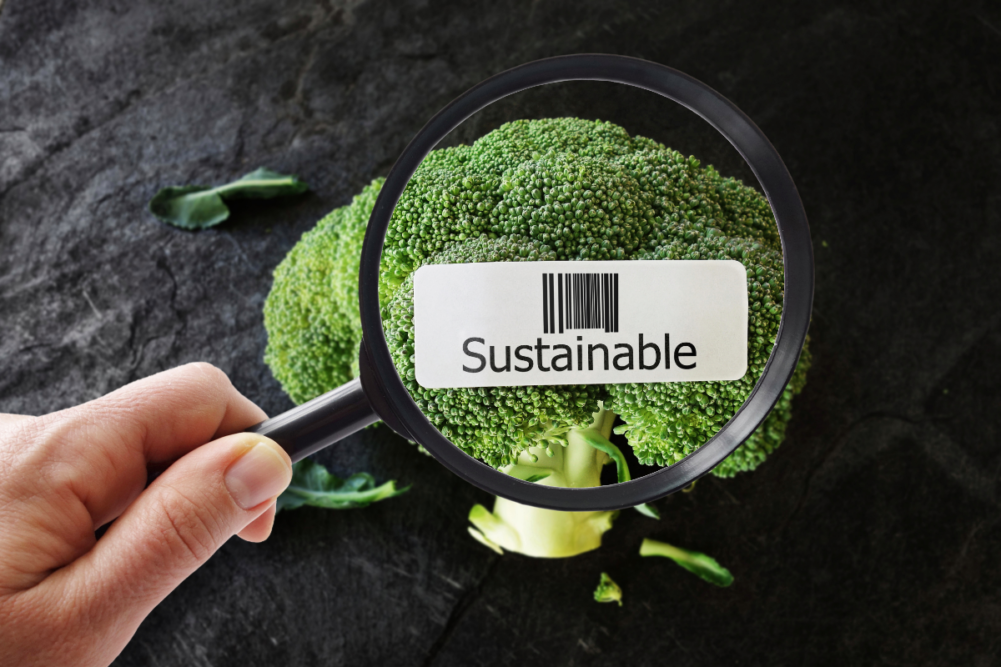KANSAS CITY — Surveys show people take a positive view of food companies that practice sustainability, and those companies continue to report progress in areas such as the environment and labor practices. Yet communicating the efforts to consumers still needs work.
The term ESG, which stands for environmental, social and governance factors, came up during a “climate week” virtual panel held Sept. 21.
“Even for an informed person in the aisle making a decision, it’s so hard to absorb all the information, especially on something like ESG, which is covering everything from environmental issues to human rights issues to nutrition to governing topics around representation on their board,” said Amy Senter, chief sustainability officer for the Kellogg Co., Battle Creek, Mich. “It’s such a complex issue, and I think it’s unfair for us to assume the consumer should be knowledgeable enough to (comprehend) all of that.
“I think it is our responsibility as brands, for those people seeking out that information, to make it easy to digest on our websites and readily available.”
 The International Food Information Council Foundation’s 2020 Food & Health Survey revealed consumer interest in sustainability along with confusion. Nearly 60% of those surveyed said it is important the food products they purchase or consume are produced in an environmentally sustainable way. The percentage who said environmental sustainability impacted their purchases rose to 34% in 2020 from 27% in 2019.
The International Food Information Council Foundation’s 2020 Food & Health Survey revealed consumer interest in sustainability along with confusion. Nearly 60% of those surveyed said it is important the food products they purchase or consume are produced in an environmentally sustainable way. The percentage who said environmental sustainability impacted their purchases rose to 34% in 2020 from 27% in 2019.
Yet more than 60% said they found it hard to know whether their food choices are environmentally sustainable. Of those who said they were confused, 70% said it would influence their decisions more if it were easier to know.
A survey from The Hartman Group, Bellevue, Wash., found 19% of respondents said they consider sustainability always or most of the time when shopping for foods and beverages while 36% said occasionally. Millennials had the highest percentages at 25% for always or most of the time and 37% for occasionally. Other percentages were 18% and 36% for Gen Z, 18% and 34% for Gen X, and 15% and 35% for baby boomers.
Some sustainability claims are recognized more easily. A 2017 report from the Natural Marketing Institute, Harleysville, Pa., found 63% of American shoppers said they recognized the Fair Trade Certified seal, and 75% of millennials said Fair Trade Certified is important to their purchase decisions. Fair trade seeks to eliminate poverty and enable sustainable development for farmers, workers, their families and their communities.
Other programs exist for specific crops and ingredients.
Singapore-based Olam International in September called for retailers and food brands to back the new “Sustainable Rice Platform-Verified” assurance scheme and consumer pack label, which allows people to choose products that directly support efforts to increase farmer incomes and reduce the environmental impact of rice production.
“Unlike crops such as coffee and cocoa, consumers have no awareness of the sustainability issues associated with rice and therefore, no impetus to change them,” said Paul Nicholson, head of rice research and sustainability for Olam’s global rice business. “This label can help galvanize consumer action behind rice, an affordable food that’s unique in its international appeal and the largest food source on earth.”
The Roundtable on Sustainable Palm Oil, Kuala Lumpur, Malaysia, on Sept. 16 released its 2019 Impact Report on efforts to reduce deforestation. The total area certified by the RSPO grew 9% in 2019 to reach 4.2 million hectares (10.4 million acres) across 17 countries. Certified palm oil mills produced 15.19 million tonnes of certified sustainable palm oil, a 13% increase year-over-year.
“Boycotting palm does not offer a long-term solution,” said Aurora Giribuola, global product marketing manager for DuPont Nutrition & Biosciences, a business of DuPont. “Responsible palm is the way forward. Package claims are part of the toolbox to make consumers aware of sustainably sourced ingredients. Members of RSPO that have achieved supply chain certification from an RSPO-approved certification body may attach the RSPO ‘Certified’ and ‘Mixed’ trademarks and associated marketing claims to their products.”
Indonesia and Malaysia account for 81% of the total RSPO-certified area. The Malaysian Palm Oil Council has its own sustainable palm oil certification. The council originally partnered with the RSPO but then set up its own standards to better reach out to smallholder farmers.
Cargill, Minneapolis, in May published FATitudes research that found 37% of consumers said they were more likely to purchase products with a sustainability claim, which was a 6% increase from research in 2019, said Jamie Mavec, marketing manager, Cargill global edible oils. The FATitudes research monitors consumer attitudes toward fats and oils in packaged foods.
“Across all commodities, palm and soy oil included, people want assurance that raw materials are sourced in a sustainable, environmentally conscious way,” Ms. Mavec said. “A transparent and traceable supply chain is key to delivering on that demand and serves to elevate consumer trust in the brands they buy.”





